M. Joseph Murphy's Blog, page 10
July 19, 2013
Author Interview - April M. Reign Discuss the Secret to Being Prolific and Effective Video Promotion
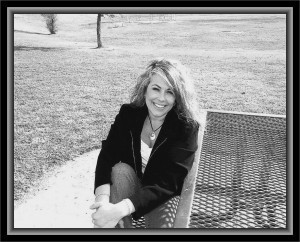
April M. Reign is the author of several fan-favorite series (e.g. Dhellia Series, Mancini Saga, Disciples of the Damned Series, etc.) I met her on twitter. However, after following her on Facebook I became a huge fan. Not just of her writing, but of the way she interacts with her fans.
And her fans love her. I wanted to find out how she was so prolific and how she managed her brand. I was fortunate enough to be granted an interview.
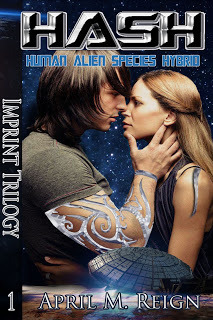
1. You are very prolific. From the looks of it, you have 5 series (including HASH, book 1 in the Imprint Trilogy), several standalone books and you’re also branching out into horror. What’s your secret for getting so much work done?
My secret is consistency . Every day, I sit in front of my laptop and I write. I may only write 200 words (on a bad day) or 3000 words (on a good day) but there is never a day that goes by when I don’t write. Consistency
2. With so many projects on the go, is it difficult keeping your stories straight? Have you ever mistakenly put a character into the wrong series?
I don’t usually put a character into the wrong series but I do have a tendency to mix 3rd and 1st person narrative. I’ve written three of my series in 1st person and two in 3rd person. At times, it gets confusing. (smile)
As far as keeping my stories straight, (Laugh) I have to reread each book in a series before I can write the next one, so that I keep the voice of my characters the same. With so many series going at once, I find this is the best way to keep it all straight in the chaos that I call my…creative mind.
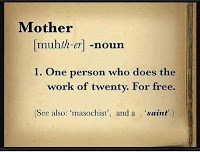
3. You are a very proud mother. What do you think is the greatest lesson you’ve been able to teach your sons? What’s the greatest lesson they have taught you?
Yes, I am a very proud mother of two amazing sons. Although, I’ve taught my boys many lessons in life, I’d have to say one in particular stands out above the rest… Finding and following their dreams. Hard work, perseverance and determination are important factors in achieving their dreams and making them reality. I’ve tried to lead them by example.
They have taught me a thousand different things. But if I had to choose one, I’d say they’ve taught me the importance of being patient.
4. You also have very devote fans: almost 25,000 on twitter, over 3,000 on Facebook, and you have comments on all your blog posts. Does that put more pressure on you creatively or does it inspire you to work harder?
Both! I have supportive, amazing readers. They’ve watched me grow as an author. I can honestly say that my readers inspire me to work harder, and create different worlds where they can truly get lost.
Of course, that also puts creative pressure on me, but I thrive in the midst of pressure.
5. “The Dhellia Series Fun Video” is a superb video. Very simple and yet highly polished and professional. Who did the video and what was the process like for you? What do you think makes for good video promotion.
Well, I’m not an expert on video promotion. One day, I was browsing the internet, and I saw this cool thing called a whiteboard video used as advertisement. I searched high and low for someone to create this video, but every company I researched had prices that ranged from $1500.00 to $10,000.00. That was certainly out of my price range for promotional tools. Then I found a person on a discount website that could do the video for me at a reasonable price.
I love the video and it gives The Dhellia Series a thirty-second opportunity to shine.

Lastly, if you could give fellow writers one piece of advice on how to promote their products, what would it be?
Be consistent with writing. One published story is an accomplishment, but a reader who enjoys your work will want to read more than one story. Are you giving them a selection? Sometimes individuals will wrap themselves up in promoting one story and they will forget to write the next. Your name is your brand, write the next story and your fans/readers will follow you.
Links:
 April M. Reign's Website
April M. Reign's WebsiteApril M. Reign's Amazon Author Page
April M. Reign's Goodread Page
April M. Reign on Smashwords
April M. Reign on Twitter
April M. Reign on Facebook
Published on July 19, 2013 08:47
July 18, 2013
Luke Bellmason Discusses Book Cover, The Writing Process and Kurt Vonnegut's Shape of Stories
Here is part two of my interview with author Luke Bellmason.
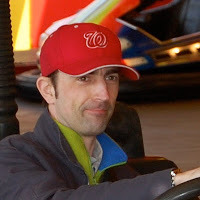
You did the cover for Canterbury Tales yourself. It’s very impressive, a rarity for authors. Simple and yet instantly recognizable. Is there a difference, for you, between writing and creating visual art?
Thank you for saying so. I am so critical of my own work and it's almost impossible to judge yourself. I think there is link between all of the creative arts. music, painting and writing and it's aesthetics. It's such a difficult concept to grasp because it's entirely subjective. Two people might agree that something looks beautiful but ten others might not. Who is right? I know when I've done something that looks right image wise, but I can't explain how. I just look at it and say to myself "yes, that's right." When someone else agrees that's very pleasing. I only wish it were that easy with writing, I am never quite sure whether that's good or not. There's a lot less certainty.
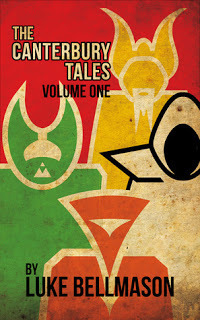
I think I must have a visual sort of mind, I tend to visualize everything in the story before I ever write it down. The writing part is the last part, like the events have happened and the words are just the 'reporting' of those events. I did a two year course in visual communications about six years ago and, even though I can't draw that well and have never seriously considered working in the industry professionally, I learned how to present things professionally. How to 'sell' yourself and take a professional attitude to manage deadlines and such. It seems like something so simple now, but before going to college I would start projects and never finish them, or never plan them out to how I would complete them. I'm a lot more workman-like about my writing as a result of that and it's certainly come in very handy to know how to do typesetting and produce stuff for print and all that.
The other great thing I learned at college was to be experimental. You have to do something which will stand out. Everyone has access to Photoshop and computer imaging software these days but they are just tools. There's a great temptation to let the computer do all the work but then you'll simply end up with something which looks exactly like everyone else's.
At college, they would encourage us to go out and photograph 'textures' or to collect unusual objects, or do something else totally random. Then we'd have to incorporate these into our work. It made us think differently and come at things from another direction. I have certainly tried to apply this ethos to my writing.
Like the story I'm working on at the moment, which has the plot line of 'discovery'. The main character discovers something which ends up changing his life and leading him in turn to discover something fundamental about himself. I took the word 'discovery' as a theme and 'discovery' wrote the first draft instead of carefully outlining it like I normally would. The result was a different story to the one I would have written if I'd planned it, probably. I don't actually know this for certain of course. I would be inclined to say I learned 'to think outside of the box' if that phrase wasn't so hideously overused.
Describe your writing process? How often do you write and how long per session?
I write do a lot of my writing at work, in the truck or sitting in the driver's waiting room. I can easily clock up three or four hours of sitting-around-time a night. Having said that, I do have an iPad and waste a huge amount of that time on twitter, or watching TV shows and movies.
I recently set up a very convoluted system for making myself write, which involved writing a text adventure game. Check my blog for more details. It's completely crazy, and I know it's crazy, but it seems to be working. It goes back to what I said about being experimental. Nobody in their right mind would waste time creating a text adventure game to help them write a novel, but doing the obvious and the expected is only a sure route to creating something obvious and expected.
The first four tales took over four years to write, but it allowed me to develop a kind of production line system where I start out with a concept, themes and a plot then go on through drafts on to a final version.
Link: Kurt Vonnegut Explains Drama
So to begin with I draw up (with coloured lines and everything) an outline for each main character. If you've seen that video of Kurt Vonnegut explaining Cinderella and other classic tales, you'll get the idea. That outline forms the basis for the first draft, which is a really free-flowing exploration of all the ideas I've had for the story. I don't hold anything back, I just chuck everything in. Usually the story has been gestating for months and rolling around inside my head. I like it best when the first draft spills onto the screen in a couple of weeks.
Sorting out the mess of the first draft is the task of the second draft, which is where I try and figure out where the scenes are, and each scene has to advance the plot. This is vital with a short story where space is at a premium, but it also keeps the story moving along and I like to switch up locations a lot too, have contrasts between scenes so the mood changes and the reader gets a sense of following the character through their journey.
The third draft is where I edit down, make things clearer, try to cut out scenes which aren't necessary or merge scenes. It's great when you can double up things too, like having dialogue which doesn't just explain the plot, but also describes a character and maybe foreshadows or sets something up for later. The third draft really has to get the story ready for publication, with line-editing to cut down the word count as much as possible. Someone once told me to 'imagine the editor is charging you for each word'.

Then there's the final draft, where I do the last bit of proof-reading and checking for overused words, like 'just' or 'decide' or 'wonder', which I seem to use a hell of a lot!
I am the worst procrastinator in the world and will do anything to avoid writing, but with this new system I'm hoping plan out my time much more carefully and get the next volume out in a year.
The ideal amount of time I've found for writing is about 90 minutes . You have to decide to make those 90 minutes sacred, keep away from Twitter and the internet. Even so, for the first half an hour is just messing about, getting the brain warmed up. Then I'll hopefully be in the zone for a good hour, before I stop. I stop at the end of the time, even unless things are going really well, because I'll go off the boil and stop producing anything any good.
One of the things I like to do at the end of a session like this as well is to set up the thing I'm going to be doing in the next session. Write the first few lines of the next scene or a few lines of dialogue. So I'm not coming to the work completely cold next time.
What do you think is your weak point as a writer? Or, to say that another way, describe something about your writing you would like to improve.
I often worry about my characters and whether they're all the same, or whether they're all just versions of me. I enjoy writing dialogue but it's so hard to get into a character if you're not sympathetic with them or if they're supposed to be the 'bad guy'.
My main gripe though is my lack of output, the procrastination that I mentioned. But then again, I would not be too unhappy to have written only one or two good books by the time I leave this rock by one means or another.
I used to read a lot of books on writing and listen to writing podcasts and go to writing workshops, but in the end I think you can overdo it. One tends to end up with analysis paralysis, where you end up doing nothing because you think everything you're writing is bad. There's a sort of bad writing hypochondria where you recognise every example of bad writing and think 'yes, I do that.' You can easily convince yourself you're writing is shockingly bad and that has the effect of stopping you from writing, which is the opposite of what you should do of course, which is write more and more until you get better.
Or, you could do what I do and just have your story told by a narrator and then blame all the bad writing on him.
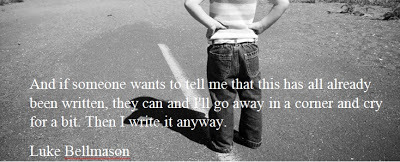
Lastly, how many volumes are planned for Canterbury Tales? Have you thought about what you’d like to write after the series is finished?
There will be two more volumes of the tales to come, making up the total of twelve tales. Volume 2 should be out next year, with volume 3 following in 2015. Then I'll probably collect the three volumes together into one book, and I'm thinking that maybe I should add some new stuff for that version.
There could be an infinite number of follow ups, but I'm a big fan of ending things before they go stale. Leave your audience wanting more and all that.
The book after was planned so long ago, well before the Canterbury Tales were even conceived. But it's going to be a better book for the fact that I have honed my story-telling skills on this project first. I'm really aware of learning all I can from this project to build up to writing the next one.
It will also be based on video-games and the culture that surrounds them. It'll have two levels going on, a little like the Canterbury Tales has; firstly the group of players in an online game and also the events and characters they play in the game itself. It will also tie in with what I said about online games and the character's stories emerging from the players themselves, rather than having pre-written and scripted things in the game.
I'd love to explore the iteration between the players and their characters in a system which could potentially generate and manage an entire fictional universe drawn from all the world's literature and culture on the internet. A sort of automated AI storytelling machine which injects new stuff into a video game all the time. Such a game would be endlessly playable (not to mention highly addictive.)

You did the cover for Canterbury Tales yourself. It’s very impressive, a rarity for authors. Simple and yet instantly recognizable. Is there a difference, for you, between writing and creating visual art?
Thank you for saying so. I am so critical of my own work and it's almost impossible to judge yourself. I think there is link between all of the creative arts. music, painting and writing and it's aesthetics. It's such a difficult concept to grasp because it's entirely subjective. Two people might agree that something looks beautiful but ten others might not. Who is right? I know when I've done something that looks right image wise, but I can't explain how. I just look at it and say to myself "yes, that's right." When someone else agrees that's very pleasing. I only wish it were that easy with writing, I am never quite sure whether that's good or not. There's a lot less certainty.

I think I must have a visual sort of mind, I tend to visualize everything in the story before I ever write it down. The writing part is the last part, like the events have happened and the words are just the 'reporting' of those events. I did a two year course in visual communications about six years ago and, even though I can't draw that well and have never seriously considered working in the industry professionally, I learned how to present things professionally. How to 'sell' yourself and take a professional attitude to manage deadlines and such. It seems like something so simple now, but before going to college I would start projects and never finish them, or never plan them out to how I would complete them. I'm a lot more workman-like about my writing as a result of that and it's certainly come in very handy to know how to do typesetting and produce stuff for print and all that.
The other great thing I learned at college was to be experimental. You have to do something which will stand out. Everyone has access to Photoshop and computer imaging software these days but they are just tools. There's a great temptation to let the computer do all the work but then you'll simply end up with something which looks exactly like everyone else's.
At college, they would encourage us to go out and photograph 'textures' or to collect unusual objects, or do something else totally random. Then we'd have to incorporate these into our work. It made us think differently and come at things from another direction. I have certainly tried to apply this ethos to my writing.
Like the story I'm working on at the moment, which has the plot line of 'discovery'. The main character discovers something which ends up changing his life and leading him in turn to discover something fundamental about himself. I took the word 'discovery' as a theme and 'discovery' wrote the first draft instead of carefully outlining it like I normally would. The result was a different story to the one I would have written if I'd planned it, probably. I don't actually know this for certain of course. I would be inclined to say I learned 'to think outside of the box' if that phrase wasn't so hideously overused.
Describe your writing process? How often do you write and how long per session?
I write do a lot of my writing at work, in the truck or sitting in the driver's waiting room. I can easily clock up three or four hours of sitting-around-time a night. Having said that, I do have an iPad and waste a huge amount of that time on twitter, or watching TV shows and movies.
I recently set up a very convoluted system for making myself write, which involved writing a text adventure game. Check my blog for more details. It's completely crazy, and I know it's crazy, but it seems to be working. It goes back to what I said about being experimental. Nobody in their right mind would waste time creating a text adventure game to help them write a novel, but doing the obvious and the expected is only a sure route to creating something obvious and expected.
The first four tales took over four years to write, but it allowed me to develop a kind of production line system where I start out with a concept, themes and a plot then go on through drafts on to a final version.
Link: Kurt Vonnegut Explains Drama
So to begin with I draw up (with coloured lines and everything) an outline for each main character. If you've seen that video of Kurt Vonnegut explaining Cinderella and other classic tales, you'll get the idea. That outline forms the basis for the first draft, which is a really free-flowing exploration of all the ideas I've had for the story. I don't hold anything back, I just chuck everything in. Usually the story has been gestating for months and rolling around inside my head. I like it best when the first draft spills onto the screen in a couple of weeks.
Sorting out the mess of the first draft is the task of the second draft, which is where I try and figure out where the scenes are, and each scene has to advance the plot. This is vital with a short story where space is at a premium, but it also keeps the story moving along and I like to switch up locations a lot too, have contrasts between scenes so the mood changes and the reader gets a sense of following the character through their journey.
The third draft is where I edit down, make things clearer, try to cut out scenes which aren't necessary or merge scenes. It's great when you can double up things too, like having dialogue which doesn't just explain the plot, but also describes a character and maybe foreshadows or sets something up for later. The third draft really has to get the story ready for publication, with line-editing to cut down the word count as much as possible. Someone once told me to 'imagine the editor is charging you for each word'.

Then there's the final draft, where I do the last bit of proof-reading and checking for overused words, like 'just' or 'decide' or 'wonder', which I seem to use a hell of a lot!
I am the worst procrastinator in the world and will do anything to avoid writing, but with this new system I'm hoping plan out my time much more carefully and get the next volume out in a year.
The ideal amount of time I've found for writing is about 90 minutes . You have to decide to make those 90 minutes sacred, keep away from Twitter and the internet. Even so, for the first half an hour is just messing about, getting the brain warmed up. Then I'll hopefully be in the zone for a good hour, before I stop. I stop at the end of the time, even unless things are going really well, because I'll go off the boil and stop producing anything any good.
One of the things I like to do at the end of a session like this as well is to set up the thing I'm going to be doing in the next session. Write the first few lines of the next scene or a few lines of dialogue. So I'm not coming to the work completely cold next time.
What do you think is your weak point as a writer? Or, to say that another way, describe something about your writing you would like to improve.
I often worry about my characters and whether they're all the same, or whether they're all just versions of me. I enjoy writing dialogue but it's so hard to get into a character if you're not sympathetic with them or if they're supposed to be the 'bad guy'.
My main gripe though is my lack of output, the procrastination that I mentioned. But then again, I would not be too unhappy to have written only one or two good books by the time I leave this rock by one means or another.
I used to read a lot of books on writing and listen to writing podcasts and go to writing workshops, but in the end I think you can overdo it. One tends to end up with analysis paralysis, where you end up doing nothing because you think everything you're writing is bad. There's a sort of bad writing hypochondria where you recognise every example of bad writing and think 'yes, I do that.' You can easily convince yourself you're writing is shockingly bad and that has the effect of stopping you from writing, which is the opposite of what you should do of course, which is write more and more until you get better.
Or, you could do what I do and just have your story told by a narrator and then blame all the bad writing on him.

Lastly, how many volumes are planned for Canterbury Tales? Have you thought about what you’d like to write after the series is finished?
There will be two more volumes of the tales to come, making up the total of twelve tales. Volume 2 should be out next year, with volume 3 following in 2015. Then I'll probably collect the three volumes together into one book, and I'm thinking that maybe I should add some new stuff for that version.
There could be an infinite number of follow ups, but I'm a big fan of ending things before they go stale. Leave your audience wanting more and all that.
The book after was planned so long ago, well before the Canterbury Tales were even conceived. But it's going to be a better book for the fact that I have honed my story-telling skills on this project first. I'm really aware of learning all I can from this project to build up to writing the next one.
It will also be based on video-games and the culture that surrounds them. It'll have two levels going on, a little like the Canterbury Tales has; firstly the group of players in an online game and also the events and characters they play in the game itself. It will also tie in with what I said about online games and the character's stories emerging from the players themselves, rather than having pre-written and scripted things in the game.
I'd love to explore the iteration between the players and their characters in a system which could potentially generate and manage an entire fictional universe drawn from all the world's literature and culture on the internet. A sort of automated AI storytelling machine which injects new stuff into a video game all the time. Such a game would be endlessly playable (not to mention highly addictive.)
Published on July 18, 2013 13:18
July 17, 2013
Author Interview - Luke Bellmason Discusses Inspiration, Videos Games and Why He's Hasn't Read the Original Canterbury Tales
 I met Luke Bellmason through our mutual friend Jae Blakney. She posted the preface to Canterbury Tales on her blog. I was immediately impressed by the quality of writing. Thankfully, Luke and I have talked several times and he recently agreed to an in-depth interview. Here is Part 1. In your preface you discuss the process of coming up with Canterbury Tales. I think it’s a valuable story for young writers. Did you have someone give you helpful advice when you started writing? If so, who was it and what did they say?
I met Luke Bellmason through our mutual friend Jae Blakney. She posted the preface to Canterbury Tales on her blog. I was immediately impressed by the quality of writing. Thankfully, Luke and I have talked several times and he recently agreed to an in-depth interview. Here is Part 1. In your preface you discuss the process of coming up with Canterbury Tales. I think it’s a valuable story for young writers. Did you have someone give you helpful advice when you started writing? If so, who was it and what did they say? I can't think of any one person who gave me advice when I started writing because I don't think I told anybody I was doing it! I was one of those writers who was scared to show my work to anyone because they might not like it. I am still like that and I imagine it's a natural thing not to want to hear criticism but I didn't even give my work to my friends to read.
I can't think of any one person who gave me advice when I started writing because I don't think I told anybody I was doing it! I was one of those writers who was scared to show my work to anyone because they might not like it. I am still like that and I imagine it's a natural thing not to want to hear criticism but I didn't even give my work to my friends to read.Eventually I plucked up the courage to join a writing group and it covered everything you needed to know from fiction, to writing articles, to how newspaper stories are written, to poetry, to romance, to short stories to novels. I can remember reading out a story I'd written for the first time to the group. It was a ghost story about a submarine and it was quite 'atmospheric'. I read it out to the class and it was the very first time anyone had heard my work. A woman at the front of the class said she had been 'transported away' to the place I was describing and she could see the rolling waves, the rain and the dripping walls. I think that was the moment I realised the power that writing could have. Unfortunately, I had neglected to give the story an ending so she said she was dying to know what happened next!
That was the one experience I'd say that made me realise that being an author gave you a tremendous power to create anything you wanted inside people's heads. After that I was hooked, and even though sometimes I feel like life would be a lot easier if I didn't have this little writing demon nagging at me day and night to "sit down and write", I know I'll never be able to give it up.
Once you become a writer, you can never look at the world the same way again. Wherever you go and whatever you do it gives you a purpose; you're an observer, you get to look at things and think about why they are the way they are, what they would be like if they were different.
One if the other major events in my early writing days was finding Douglas Adams. When I first saw the Hitchhiker's Guide to the Galaxy on TV, the old 80s series, I realised that I was Ford Prefect. I'd always suspected that I wasn't originally from this planet, so the idea of being a researcher for some intergalactic guide book really appealed to me. That and the fact that Ford (like his creator) managed to be a writer without actually doing that much writing. For Ford (and Douglas) the experiencing of things was far more important than the writing about them bit.
Sorry, I seem to have drifted somewhat from the original question.
No. That’s a perfect answer. In your introduction you mention a video game called Elite. Have you tried replaying it recently?
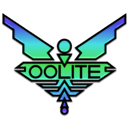 Yes, I did play a game called 'Oolite' a few years ago, which is a freeware version of Elite for the Mac. It's been updated and expanded quite a bit and has a great modding community, but it has a mode which lets you play it as the original Elite. What you tend to forget is how boring it was! Compared to modern games, there's really very little going on, so much of the game is in your own imagination. That's also the key to good writing I think. The more you cram into someone's head, the less work the reader, or the player, has to do which means they're less engaged.
Yes, I did play a game called 'Oolite' a few years ago, which is a freeware version of Elite for the Mac. It's been updated and expanded quite a bit and has a great modding community, but it has a mode which lets you play it as the original Elite. What you tend to forget is how boring it was! Compared to modern games, there's really very little going on, so much of the game is in your own imagination. That's also the key to good writing I think. The more you cram into someone's head, the less work the reader, or the player, has to do which means they're less engaged.I often wonder if playing Elite had an influence on my choice of career because I ended up as a truck driver! I even started learning to fly a helicopter about two years ago and there's a lot of that piloting, trucking kind of vibe going on in the my stories. A lot of the stories involve sitting trapped inside a box, and yet being free to roam the galaxy.
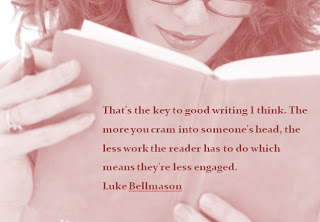
Are you aware that Elite has a sequel coming out (Elite: Dangerous). If so, do you plan on playing it?
Yes! In fact I found out about Elite: Dangerous from Twitter and I saw the Kickstarter page the day after it ended. There was an option on there to buy the rights to publish an official Elite book, but I just missed out! So I could have quite easily made 'The Canterbury Tales' into an Elite book, and it would have been nice to have been part of the big launch next year when the game and all the other books come out. The publicity would have been handy too. In another way though I'm glad I missed the deadline because a) I need the money for flying and b) this way I get total creative control.
From what I read the new game is everything we've been waiting for all these years. I played the original Elite sequel, Frontiers, but found it totally unplayable. They had given it realistic physics and made an astronomically accurate galaxy and solar systems, which was incredibly impressive in its own way, but it totally ruined space combat. The speed of everything was all relative to the nearest planet or star and enemy ships would whip past you at thousands of miles per hour, then circle around and whip back again just as fast. You couldn't even hit them!
So I understand that this new Elite has gone in for more of a classic feel, with much more detailed planetary systems, economics and political systems, and everything is supposed to be tied in with one online persistent universe, so when a system decides to build a new station, it will affect the commodity prices for the construction materials in the surrounding systems and so on. Wars can cause humanitarian disasters which will put the food prices up, all kinds of complex interactions will be going on all the time.
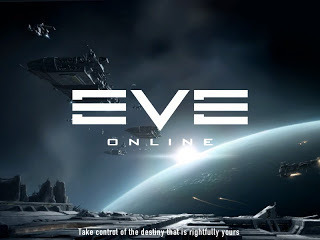
What interests me about all of this is the law of 'unintended consequences' and what happens when you let real people loose on an open world. Emergent behaviour is certain to create new and fascinating things in the game which the designers hadn't anticipated. I love all of that. I played EVE Online for a bit and liked how the stories in the game came purely from the player interactions rather than being put there by the designers.
One of the stories I'm working on now for Volume 2, the Miner's Tale, is based on my brief experiences in EVE Online. If Elite: Dangerous can somehow mix the chaos of an online game with the structure of the old Elite, it will be awesome.
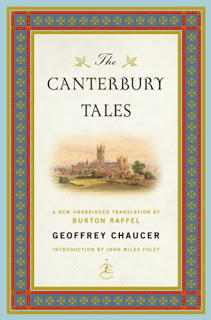
If I remember correctly, you’ve never actually read the original Canterbury Tales. Do you plan on reading it now?
I fear that the original Canterbury Tales is totally impenetrable to anyone who hasn't studied the medieval period and knows how to read “olde English”. Plus the fact it's poetry. I read somewhere that it wasn't just one of the first books published, but one of the first published in English. At the time, books were in German, French or Latin, and the English people spoke was far removed from what we speak now, it really is another language. Remember also that not many people would have been able to read or write when the Canterbury Tales came out.
I suppose in a way, the world of medieval England is as far removed from us now as the world of starships, faster-than-light travel and aliens, so maybe there's a neat sort of parallel.
I did find an updated version of the Canterbury Tales translated into a more readable kind of English, the Percy Mackaye version if anyone wants to find it. I could see myself reading this at some point, though it's still quite hard going. I actually based the language of the 'story-teller' in my book on the kind of language used in this 19th century version.
LINK: Canterbury Tales Kindle Version Translation by Percy Mackaye
The main problem in understanding the book for me would be not knowing much about that time period. The church was a much more powerful force in people's lives and a few of the characters in the original stories are related to religion. In a way, it would be like reading a science-fiction story with all the exposition removed, which might be an interesting exercise.
History fascinates me and I never took much interest in it at school. One of the hardest things about history is forgetting everything that you know and trying to imagine what it was like for people at the time. It's so easy for us to look at major events, like world war two or the sinking of the titanic for example, and look at them with hindsight. People knew and believed different things in the past and that shaped their actions. It's one of the things that annoys me about 'steampunk'. It's lazy history; it doesn't bother to filter out the modern world, it simply assumes everything was the same then as it is now. All steampunk is basically the 'Flintstones' to me.
Part Two of the Interview Will Be Posted Thursday
For My Review of Canterbury Tales: Click HerePurchase Canterbury Tales Now on Amazon.co.uk or Amazon.com
Published on July 17, 2013 19:15
July 15, 2013
Author Interview - Sean P. Wallace Talks About His YA Novel (Deep Echoes), Artistic Struggles and Boycotting Ender's Game
I recently had the privilege of interviewing Sean P.Wallace, author of the YA science fiction novel Deep Echoes. I thoroughly enjoy his blog. Make sure you check it out. (See link at end of article)
 Sean P. Wallace - author Deep Echoes
Sean P. Wallace - author Deep Echoes
1. Where did the concept for your novel, Deep Echoes, come from? It is a Young Adult Fantasy/Science Fiction novel. Do you read much YA? If so, what books are your favorites?
This is a complex question, sadly! Deep Echoes started a long time ago with another book, an attempt to produce serialized fiction on my website. This transformed into its own, non-serialized book, a book which I ultimately decided I didn't like as it was set too late in my chronology. But I loved the world I created, the world of Geos, and didn't want to let it go with that book. So, an event mentioned in that book was planted in my imagination and became, after much work, Deep Echoes. 2. You recently redid the cover for Deep Echoes. What made you change it? Was this process different choosing a cover the second time around?
I changed it because I decided that the old cover looked like what it was: a cover made by someone who didn't have much artistic talent. Me! It occurred to me that the cover wasn't helping to get people to read the book, something I desperately want, so I contacted a designer friend and commissioned a new cover. I had an idea of what I wanted for Deep Echoes and he realized that for me. It was a simple, professional transaction: exactly what you'd want from such an exchange!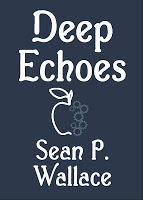 Deep Echoes - New Cover 3. One of my favorite posts on your blog was about your struggle to allow yourself to be an artist. What you call the “black noise” or the “anti-art” is something most creative people struggle with. How do you cope with it? Have you thought about what accomplishment in your life could shut this noise down for good?
Deep Echoes - New Cover 3. One of my favorite posts on your blog was about your struggle to allow yourself to be an artist. What you call the “black noise” or the “anti-art” is something most creative people struggle with. How do you cope with it? Have you thought about what accomplishment in your life could shut this noise down for good?
The main way I cope with it is through music. There are certain songs that can lift me, put me into a better state of mind, and that can help me to be creative. Where I'm struggling more so than usual, I'll pick a soundtrack from a film in the same genre as my book - I used Western soundtracks for writing Dust and Sand, a novel serialized on Geek-Pride.co.uk - and that will often do the trick instead.
(Link to Chapter 1 of Dust and Sand Click Here)
Sean P. Wallace Blog Post on Artistic Struggles
4. You mentioned wanting to make a film. What kind of film? Who are your film-making heroes?
I had grand ideas but I also have very good friend who've grounded me a little, advised me to live in the real world and get experience of filmmaking and the industry. As such, I'm going to do a film-making course and start with short films before deciding on the right script I could make with the budget.
My art style, no matter what the story, is to tell stories of the fantastic, of the strange and the outré, and use them to make deeper points. As such, I prefer to write and read Speculative pieces, and would expect any film I write to be such: Horror, Fantasy of Sci-Fi.
My film-making hero would be Kevin Smith , of Clerks and Dogma fame. He is an inspiring speaker, artist and human being. If you don't mind cursing and dirty humour, I'd recommend you check out his Smodcast podcast empire!
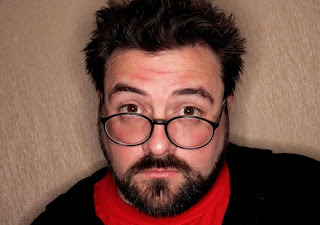 Kevin Smith5. One thing my readers will be very interested in is your choice to sell your book directly on your site. You suggest they pay what they are willing through a “donate” option. Your book is also available on Amazon. How has your experience been with the donate option?
Kevin Smith5. One thing my readers will be very interested in is your choice to sell your book directly on your site. You suggest they pay what they are willing through a “donate” option. Your book is also available on Amazon. How has your experience been with the donate option?
Without putting too fine a point on it, non-existent. This isn't something which troubles me though: as I said before, I just want people to read Deep Echoes . I think you need to be a far more established artist than I for Pay If You Like to provide any meaningful experiences. Still, I like having the option available.
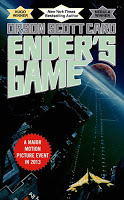
6. Lastly, your most recent blog post speaks very strongly about why you are boycotting Orson Scott Card’s Ender’s Game. Why do you think some people are willing to overlook the bigotry of an artist because their books are interesting?
I have a small amount of trepidation on this topic, as I count H.P. Lovecraft as one of my favourite writers and he was a horrible racist, something which comes out through much of his work. At first, I was willing to overlook that aspect of his work but, as I grew and learned more of concepts such as Privilege, I found that I could not ignore those parts of his work. I haven't read one of his stories for many years now, and doubt I'll do so, because I can't stomach the attitudes which come across in the piece.
Articles on Card's Homophobic Statements
I think the reluctance on some people's part not to condemn Card is a fear/feeling that it reflects on them: the idea that they are being accused of being homophobic for liking Ender's Game. They don't appreciate that it is possible to enjoy a piece of media whilst still recognizing its more troubling faults, and so they become defensive.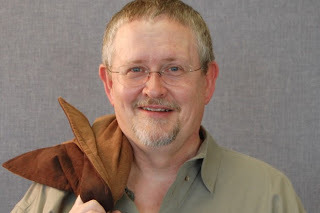 Orson Scott Card The reason people can overlook the bigotry of an artist is, I imagine, that the bigotry doesn't play a part in the work being produced. It probably surprised many to find out about Card's homophobic views - I know I hadn't heard about them until the recent Superman debacle - because he was a Science Fiction writer:
people often go to Science Fiction to find a world with more advanced, enlightened views
, and perhaps found some of them in Ender's Game.
Orson Scott Card The reason people can overlook the bigotry of an artist is, I imagine, that the bigotry doesn't play a part in the work being produced. It probably surprised many to find out about Card's homophobic views - I know I hadn't heard about them until the recent Superman debacle - because he was a Science Fiction writer:
people often go to Science Fiction to find a world with more advanced, enlightened views
, and perhaps found some of them in Ender's Game.
Why Boycott Orson Scott Card's Ender's Game?
Then there's the concept of Free Speech , particularly when this is combined with religiously-inspired beliefs: people don't like views being denounced because of this strange idea that an opinion can't be wrong. Despite it being patently the case that they can be disproven (through scientific studies, statistics, etc.) were I to guess, I'd say that people don't like opinions being fair game for dismissal and being disproved because that might mean their own ideas are fair game.
But I'd say it's the bigotry not being clear and obvious that makes the biggest difference.
Links:
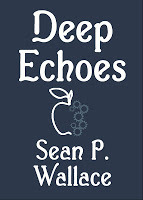 Sean P. Wallace on Amazon
Sean P. Wallace on Amazon
Sean P. Wallace on Smashwords
Sean P. Wallace Free Books (or Donation)
Sean P. Wallace Blog
Sean P. Wallace on Twitter
 Sean P. Wallace - author Deep Echoes
Sean P. Wallace - author Deep Echoes1. Where did the concept for your novel, Deep Echoes, come from? It is a Young Adult Fantasy/Science Fiction novel. Do you read much YA? If so, what books are your favorites?
This is a complex question, sadly! Deep Echoes started a long time ago with another book, an attempt to produce serialized fiction on my website. This transformed into its own, non-serialized book, a book which I ultimately decided I didn't like as it was set too late in my chronology. But I loved the world I created, the world of Geos, and didn't want to let it go with that book. So, an event mentioned in that book was planted in my imagination and became, after much work, Deep Echoes. 2. You recently redid the cover for Deep Echoes. What made you change it? Was this process different choosing a cover the second time around?
I changed it because I decided that the old cover looked like what it was: a cover made by someone who didn't have much artistic talent. Me! It occurred to me that the cover wasn't helping to get people to read the book, something I desperately want, so I contacted a designer friend and commissioned a new cover. I had an idea of what I wanted for Deep Echoes and he realized that for me. It was a simple, professional transaction: exactly what you'd want from such an exchange!
 Deep Echoes - New Cover 3. One of my favorite posts on your blog was about your struggle to allow yourself to be an artist. What you call the “black noise” or the “anti-art” is something most creative people struggle with. How do you cope with it? Have you thought about what accomplishment in your life could shut this noise down for good?
Deep Echoes - New Cover 3. One of my favorite posts on your blog was about your struggle to allow yourself to be an artist. What you call the “black noise” or the “anti-art” is something most creative people struggle with. How do you cope with it? Have you thought about what accomplishment in your life could shut this noise down for good?The main way I cope with it is through music. There are certain songs that can lift me, put me into a better state of mind, and that can help me to be creative. Where I'm struggling more so than usual, I'll pick a soundtrack from a film in the same genre as my book - I used Western soundtracks for writing Dust and Sand, a novel serialized on Geek-Pride.co.uk - and that will often do the trick instead.
(Link to Chapter 1 of Dust and Sand Click Here)
Sean P. Wallace Blog Post on Artistic Struggles
4. You mentioned wanting to make a film. What kind of film? Who are your film-making heroes?
I had grand ideas but I also have very good friend who've grounded me a little, advised me to live in the real world and get experience of filmmaking and the industry. As such, I'm going to do a film-making course and start with short films before deciding on the right script I could make with the budget.
My art style, no matter what the story, is to tell stories of the fantastic, of the strange and the outré, and use them to make deeper points. As such, I prefer to write and read Speculative pieces, and would expect any film I write to be such: Horror, Fantasy of Sci-Fi.
My film-making hero would be Kevin Smith , of Clerks and Dogma fame. He is an inspiring speaker, artist and human being. If you don't mind cursing and dirty humour, I'd recommend you check out his Smodcast podcast empire!
 Kevin Smith5. One thing my readers will be very interested in is your choice to sell your book directly on your site. You suggest they pay what they are willing through a “donate” option. Your book is also available on Amazon. How has your experience been with the donate option?
Kevin Smith5. One thing my readers will be very interested in is your choice to sell your book directly on your site. You suggest they pay what they are willing through a “donate” option. Your book is also available on Amazon. How has your experience been with the donate option?Without putting too fine a point on it, non-existent. This isn't something which troubles me though: as I said before, I just want people to read Deep Echoes . I think you need to be a far more established artist than I for Pay If You Like to provide any meaningful experiences. Still, I like having the option available.

6. Lastly, your most recent blog post speaks very strongly about why you are boycotting Orson Scott Card’s Ender’s Game. Why do you think some people are willing to overlook the bigotry of an artist because their books are interesting?
I have a small amount of trepidation on this topic, as I count H.P. Lovecraft as one of my favourite writers and he was a horrible racist, something which comes out through much of his work. At first, I was willing to overlook that aspect of his work but, as I grew and learned more of concepts such as Privilege, I found that I could not ignore those parts of his work. I haven't read one of his stories for many years now, and doubt I'll do so, because I can't stomach the attitudes which come across in the piece.
Articles on Card's Homophobic Statements
I think the reluctance on some people's part not to condemn Card is a fear/feeling that it reflects on them: the idea that they are being accused of being homophobic for liking Ender's Game. They don't appreciate that it is possible to enjoy a piece of media whilst still recognizing its more troubling faults, and so they become defensive.
 Orson Scott Card The reason people can overlook the bigotry of an artist is, I imagine, that the bigotry doesn't play a part in the work being produced. It probably surprised many to find out about Card's homophobic views - I know I hadn't heard about them until the recent Superman debacle - because he was a Science Fiction writer:
people often go to Science Fiction to find a world with more advanced, enlightened views
, and perhaps found some of them in Ender's Game.
Orson Scott Card The reason people can overlook the bigotry of an artist is, I imagine, that the bigotry doesn't play a part in the work being produced. It probably surprised many to find out about Card's homophobic views - I know I hadn't heard about them until the recent Superman debacle - because he was a Science Fiction writer:
people often go to Science Fiction to find a world with more advanced, enlightened views
, and perhaps found some of them in Ender's Game.Why Boycott Orson Scott Card's Ender's Game?
Then there's the concept of Free Speech , particularly when this is combined with religiously-inspired beliefs: people don't like views being denounced because of this strange idea that an opinion can't be wrong. Despite it being patently the case that they can be disproven (through scientific studies, statistics, etc.) were I to guess, I'd say that people don't like opinions being fair game for dismissal and being disproved because that might mean their own ideas are fair game.
But I'd say it's the bigotry not being clear and obvious that makes the biggest difference.
Links:
 Sean P. Wallace on Amazon
Sean P. Wallace on AmazonSean P. Wallace on Smashwords
Sean P. Wallace Free Books (or Donation)
Sean P. Wallace Blog
Sean P. Wallace on Twitter
Published on July 15, 2013 13:37
July 13, 2013
Review - The Canterbury Tales Vol I by Luke Bellmason
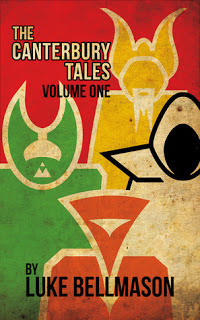
Have you ever read a book that was so well-written you kind of hate the author? That's pretty much my feeling for Canterbury Tales. It's brilliant.
Amazon SynopsisEvery ten years each spacer pilot must make the pilgrimage to Vale, where the mighty and all powerful Federal Galactic Spaceflight Licensing Authority resides. From all corners of the nine galaxies they come, on ships such as the GSS Canterbury.
To pass the time over their three nights journeying through the void each traveller tells their story. Volume One features the tale of the Smuggler, the Merchant, the Assassin and the Knight. Join them to hear their tales of rivalry, revenge, piracy, insurrection, daring escapes and adventure in this all new re-imagining of the original Canterbury Tales.
This is what Geoffrey Chaucer might have written if he'd owned a ZX Spectrum when he was 12 and wasted his formative years playing video games through the 1980's.
If you're not familiar with the original, here's an overview:
What I likedThe first thing I noticed was the very literary and witty writing style. I was hooked by the first few paragraphs. I also like that each story has an element of social commentary just below the surface. That's what science fiction is supposed to do: use fantastical situations to make us look at ourselves.
Each character is unique and interesting. You also get the sense of a much more complex world in the background without the author wasting page after page in useless worldbuilding exposition. There are moments of horror, adventure, romance and intrigue. It hit all the right buttons.
What I didn't likeI have to wait til next year to read the second part. Seriously. That's my only negative reaction.
ConclusionIf you haven't read Canterbury Tales Volume 1 by Luke Bellmason do yourself a favor and pick it up. I'm sure you're going to hate Luke as much as I do.

Links:Luke Bellmason's Website
Luke Bellmason on Goodreads
Luke Bellmason on Twitter
Buy the Book: Amazon.com, Amazon.ca, Amazon.co.uk
Published on July 13, 2013 10:53
July 10, 2013
Who Do You Write Like?

I've seen several writers, including Joe Hill, refer to this site. It apparently checks your writing and compares it to a famous writer. Apparently I write like Dan Brown. Now, only if I can get paychecks like Dan Brown.

I write like
Dan BrownI Write Like. Analyze your writing!
Give "I Write Like" a shot yourself. I'd love to here who you write like.
Published on July 10, 2013 19:54
July 9, 2013
Viral Marketing - Stand Out! Don't Be Like The Others
So my book is out now. I promoted it on social media for 6 months prior to release. During that time, I sat in judgement of all the marketing mistakes other writers did:
too much "buy my book" spamfailing to connect with target marketmis-use of goodreads
And then, as soon as I published, I found myself wanting to do the same thing. I wanted to spam twitter and facebook with pleas to buy my book. I was so excited to have it finished I temporarily forgot everything I know about marketing.
As soon as my goodreads author profile was finished I looked at Council of Peacocks, alone, unloved on a shelf. I added it to my shelf so there was at least some love for it. Then I came "this close" to recommending it to all my friends.
Such a rookie mistake.
So I started to wonder why I'd suddenly lost my mind.
I did what other people did because it came naturally. It's what "makes sense." However, I also realize that if I do what everyone else is doing I'm never going to stand out. I have to try things that don't make sense. That's what "out-of-the-box" marketing means.
Below is a video for a recent viral marketing campaign. It works incredibly well.
At first it looks like just another funny internet cat video. Which is good. It means people will want to share it. But it's truly a commercial for O2, a UK mobile phone company.
Seeing this video reminded me of how to do marketing properly. I start work on a viral marketing campaign in a few days. I haven't seen anyone do what I'm planning. It means I'll either flop hard or stand out. Sure it's a risk but if there's one thing I know about investment:
If you want to win big you have to risk big.
Council of Peacocks Now Available: Amazon - United States Amazon - Canada
Amazon - Canada
Amazon - U.K.
too much "buy my book" spamfailing to connect with target marketmis-use of goodreads
And then, as soon as I published, I found myself wanting to do the same thing. I wanted to spam twitter and facebook with pleas to buy my book. I was so excited to have it finished I temporarily forgot everything I know about marketing.
As soon as my goodreads author profile was finished I looked at Council of Peacocks, alone, unloved on a shelf. I added it to my shelf so there was at least some love for it. Then I came "this close" to recommending it to all my friends.
Such a rookie mistake.
So I started to wonder why I'd suddenly lost my mind.
I did what other people did because it came naturally. It's what "makes sense." However, I also realize that if I do what everyone else is doing I'm never going to stand out. I have to try things that don't make sense. That's what "out-of-the-box" marketing means.
Below is a video for a recent viral marketing campaign. It works incredibly well.
At first it looks like just another funny internet cat video. Which is good. It means people will want to share it. But it's truly a commercial for O2, a UK mobile phone company.
Seeing this video reminded me of how to do marketing properly. I start work on a viral marketing campaign in a few days. I haven't seen anyone do what I'm planning. It means I'll either flop hard or stand out. Sure it's a risk but if there's one thing I know about investment:
If you want to win big you have to risk big.
Council of Peacocks Now Available: Amazon - United States
 Amazon - Canada
Amazon - CanadaAmazon - U.K.
Published on July 09, 2013 07:42
July 8, 2013
Acknowledgement's Page from Council of Peacocks
Below is the acknowledgements page from Council of Peacocks. I know some people never read them. I also understand now why writers include them in books.
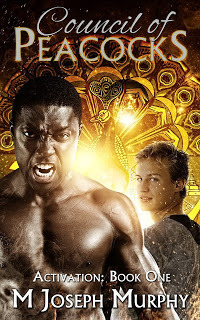
Last year, if you’d asked me, I would have told you writing was a lonely, solitary activity. Now I know better.
First, a thank you to my beta readers: James Marentette, Rob Welch, Bronwyn Cair, Stephanie Parent, Craig McGray and Carey Heywood.
To Charles Ekekea special thanks for being my harshest critic. You forced me to look at some of the largest weak spots in Council of Peacocks and make them stronger.
To Christie Stratosfor spot on line edits and constant encouragement. She pointed out weaknesses in the story and inconsistencies between scenes. This type of error is much harder to spot and more important to the reader's enjoyment.
To my cover artist, Dane Low, thanks for your wonderful eye. You took my idea for a cover and created made something better.
I also need to thank Linda Johannesson for her thorough, in-depth proofreading. You were worth every dime and then some. You found things no one else did. You also helped immensely by improving Australian slang and finding all my Canadianisms.
Lastly, a huge thanks to Travis Luedke who did line edits twice. You made me look at every word of every line on every page. You told me when my jokes weren’t funny, when my exposition was too wordy and when my dialogue needed more ‘umph’. You’ve also been my largest supporter. There is no way I’ll ever be able to repay your kindness.

Last year, if you’d asked me, I would have told you writing was a lonely, solitary activity. Now I know better.
First, a thank you to my beta readers: James Marentette, Rob Welch, Bronwyn Cair, Stephanie Parent, Craig McGray and Carey Heywood.
To Charles Ekekea special thanks for being my harshest critic. You forced me to look at some of the largest weak spots in Council of Peacocks and make them stronger.
To Christie Stratosfor spot on line edits and constant encouragement. She pointed out weaknesses in the story and inconsistencies between scenes. This type of error is much harder to spot and more important to the reader's enjoyment.
To my cover artist, Dane Low, thanks for your wonderful eye. You took my idea for a cover and created made something better.
I also need to thank Linda Johannesson for her thorough, in-depth proofreading. You were worth every dime and then some. You found things no one else did. You also helped immensely by improving Australian slang and finding all my Canadianisms.
Lastly, a huge thanks to Travis Luedke who did line edits twice. You made me look at every word of every line on every page. You told me when my jokes weren’t funny, when my exposition was too wordy and when my dialogue needed more ‘umph’. You’ve also been my largest supporter. There is no way I’ll ever be able to repay your kindness.
Published on July 08, 2013 08:22
July 7, 2013
So You Published. Now What?
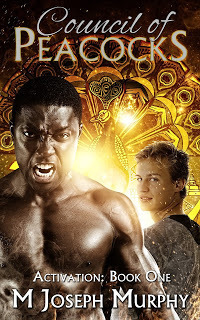
My book, Council of Peacocks, is finished. I'm about to upload it to Amazon. Everyone tells me I should feel proud, that I've accomplished something amazing. But I don't feel it.
Surprisingly, I'm a little bit numb to it all. I keep wondering why I'm not jumping up and down and celebrating. Maybe it's because, for me, the publishing part isn't the accomplishment. And it's not about the money either. My expectations are very realistic. The average indie author only sells a few hundred copies. That's about all I'm expecting.
For me, the most important thing is to have people read the book and enjoy it. Maybe I'll jump up and down at my first positive review. Before indie publishing became a reality, I always expected to get my first rejection slip. That was how I would know I was a real author. So maybe it will be my first bad review. Maybe it will be my book showing up on LousyBookCovers.com.

Here's what I do know: now that I'm published I will not be watching sales numbers on KDP. Would Stephen King lurk in Barnes & Noble waiting for someone to pick up his book? No. What he did is what I'm going to do: keep on writing.
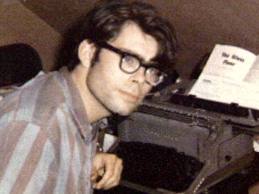 Young Stephen KingMost experts will tell you the way to make money as a writer is to write a crap load of things. I'm not going to waste too much time promoting Council of Peacocks right now. It will sell the more people become aware of me. I'll feel more excited when I have 3 or 4 books published. Maybe.
Young Stephen KingMost experts will tell you the way to make money as a writer is to write a crap load of things. I'm not going to waste too much time promoting Council of Peacocks right now. It will sell the more people become aware of me. I'll feel more excited when I have 3 or 4 books published. Maybe.Truth is, the only time I get really excited is when I'm writing. All the other stuff - the promotion, the editing, working with cover artists and beta readers - all of that is a necessary evil. My passion is doing the work.
So what should I do know that I'm published? I'm going to celebrate by doing what I do best. I'm going to write.
Published on July 07, 2013 11:04
July 4, 2013
Finally Finished Edits on Council of Peacocks

Just finished the last line edits on Council of Peacocks. Tomorrow, because I have "slight" OCD I'll be checking each sentence for consistent spacing after periods. Saturday and Sunday will be for final formatting for Amazon. That gives me a publication date of Monday, July 8th. I'll let everyone know when it's up and visible.
Now, I'm going to relax for a few minutes before heading to bed. Cheers!
Published on July 04, 2013 21:53



